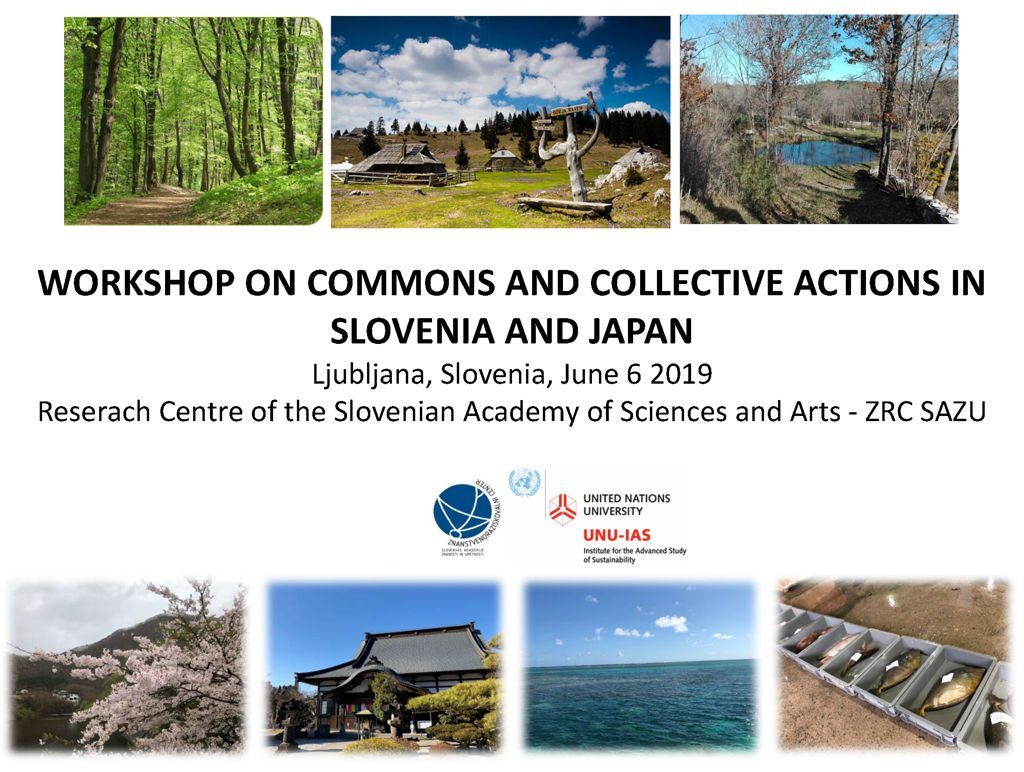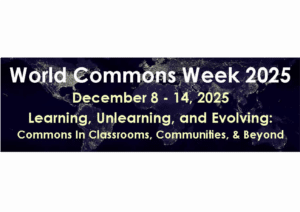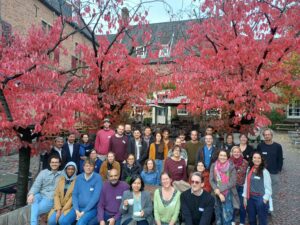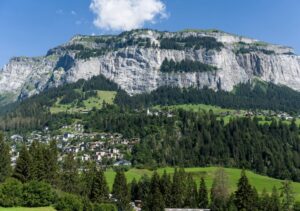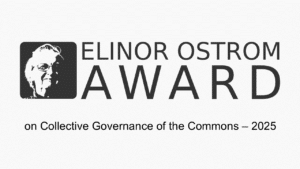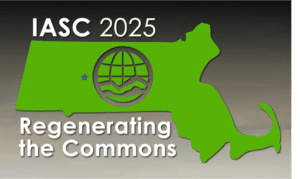As part of the Slovenian-Japanese Bilateral project Sustainable management of commons in socio-ecological production landscapes/cultural landscapes in Slovenia and Japan, a kick-off workshop was carried out at the Research Center of the Slovenian Academy of Sciences and Arts (ZRC SAZU) in Ljubljana, Slovenia on June 6 2019. It was organized by the ZRC SAZU and United Nations University, Institute for the Advanced Study of Sustainability (UNU-IAS).
The project investigates socio-ecological production landscapes and seascapes (SEPLs), which provide various benefits for human well-being, and particularly the processes taking place due to globalization, urbanization, demographic and technological changes. The project applies the concept of “New Commons” that can be considered as a key to lead restoration and sustainable management of SEPLs. The team of the project views New Commons as a concept that includes (1) resources shared on multiple levels and there is wide variety of and multi-layered beneficiaries or owners who should have responsibility on them, and (2) shared resources valued and recognized variously by different beneficiaries or owners. However, this concept has not been fully explored for sustainable development and management of SEPLs to meet various complicated challenges, particularly in Slovenia and Japan.
The workshop focused on the following three objectives:
- To review the literature on New Commons and SEPLs in Slovenia and Japan in order to define the scope and framework of New Commons.
- To understand essential components, structure and functions of SEPLs in both countries.
- To identify relevant beneficiaries (consumers), owners (suppliers), and stakeholders of SEPLs at multiple spatial and temporal scales in both countries.
The presentations have highlighted early indications that traditional commons, both in Slovenia and Japan, are more place-based (e.g. attachment to land), excludable, based on traditional knowledge, and mediated by social and cultural processes, while new commons, which seem to be more focused on network(s), are open, and mostly mediated by technology. Additionally, it seems that traditional commons are closer to rural sites while new commons are linked more to semi-urban, urban areas, while also sometimes operating on an international scale.
In further steps of this bilateral project, we will try to frame the concept of traditional and new commons in Slovenia and Japan. Additionally, our aim will be also to identify key drivers of change that new commons are facing.
For further details about the workshop and the project, as well as opportunities for collaboration, please contact IASC-Member Mateja Šmid.

